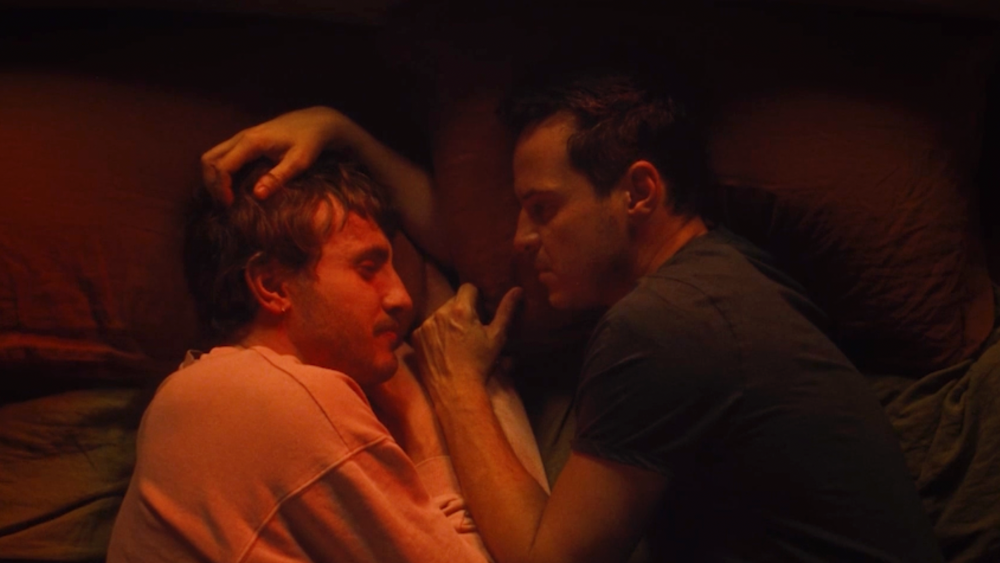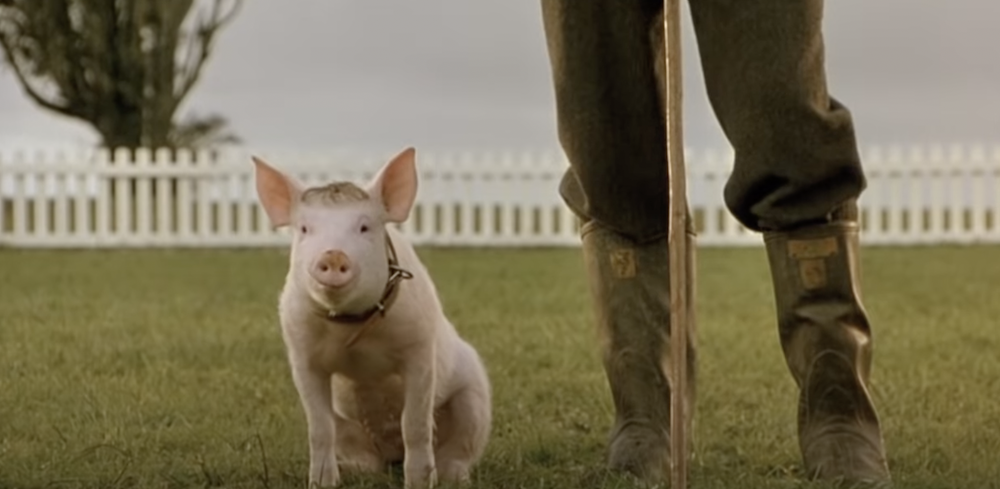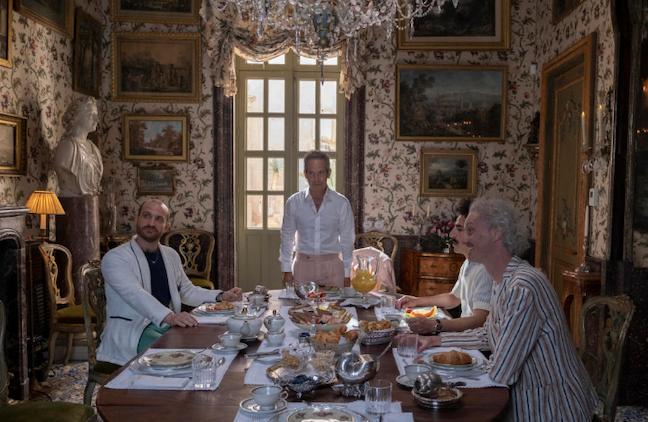Books & Culture
‘Love, Simon‘ Makes Being a Gay Teen Seem Normal—And That’s Where It Fails
An open letter to the coming-out story of the moment, about the ways it lets us down

Dear Simon,
I hesitated over sitting down to write to you. It’s now been a couple of weeks since I caught your story on the big screen. Every day since, I’ve seen friends near and far share teary-eyed confessions about what it’s meant to them to see your coming-out narrative in such a widely-marketed mainstream movie. How they loved the earnest message at the heart of your film; how they wish they’d had this sort of story growing up; how watching it with their friends, their families, their husbands made the experience all the more touching.

You’ve probably been getting all sorts of messages like these, reminding you how important it is for all of us in the LGBTQ community to see such narratives being embraced and celebrated in glossy Hollywood flicks. But Simon, at the heart of your charming tale of how a lovestruck pen-pal friendship leads to a comedy-of-errors-turned-rom-com(ing-out flick) is a celebration of normality that kept nagging at me.“My name is Simon,” you tell us in the trailer, “For the most part, my life is totally normal.” You go further: “I’m just like you.” Except for the fact that you have a giant secret: you’re gay. Putting aside who the “you” in your voiceover narration is really encompassing (fellow suburban teens? Why is it assumed that “you” are straight?), your insistence that your gayness is merely incidental baffles me.

I mean, I get it. There’s a level of progress that well-to-do kids in 2018 from liberal-leaning families in urban enclaves can point to to say that sexuality really isn’t that big of a deal. At its core, the fact that you can announce that you’re just like us is proof that our discourse surrounding homosexuality has shifted in the right direction. Twenty years ago, your reticence about coming out might have been motivated by fear. Instead, as you put it in Simon vs. the Homo Sapiens Agenda, the novel on which the film Love, Simon is based, “the whole coming out thing doesn’t really scare me. …It probably wouldn’t be the end of the world. Not for me.” You’re just worried about how your coming out might affect your pen pal “Blue,” who came out in an anonymous post on an infamous school online board. A straight guy in your class is threatening to make your secret emails with “Blue” public, and you don’t want him to be spooked if your shared secret gets out. But that admission — that coming out is more awkward than scary, more of a chore than a gamble — also signals the very privilege that you carry and which marks your story at every turn.
You live a picture-perfect life. You own a car, have a room straight out of a PB Teen catalog, and go to the kind of school that would put on a production of Cabaret (albeit starring an insufferable straight guy as the Emcee, so you know, not without its faults). Your movie mom is Jennifer Garner, for god’s sake! The narrative engine that makes your coming out feel both ordinary and extraordinary at the same time comes not from the consequences you’ll have to face, but from the poor choices you make in deciding to sidestep the awkwardness of it all (like, say, letting yourself be blackmailed rather than come out on your own terms). This is the kind of plot and character I’m supposed to find emboldening: look how far we’ve come, being gay is so normal that it’s just one of many things teenagers can screw up! But is this wish fulfillment or willful myopia? Perhaps it’s both, though the way your film imagines gayness when divorced from your own self-described “normal” life suggests more of the latter. You almost had me quoting Michael Warner’s The Trouble With Normal at friends recently, a book I wish didn’t feel so contemporary even when it’s almost twenty years old! I mean, I can’t believe we’re still litigating whether convincing the majority of Americans that queers are “normal” (“just like you!”) is still the most effective way of demanding tolerance. How much gets sacrificed in the service of catering to this so-called normal society?
How much gets sacrificed in the service of catering to this so-called normal society?
Take Ethan, your fellow gay classmate. He’s black, femme, and fabulous. He’s not quite as much of a punchline as I’d feared, but he remains a foil to your own brand of inoffensive gayness. To your schoolmates (and to many audience members catching this film) he’s the kind of gay teen we’ve come to expect. Not really a walking stereotype, but close enough that he could never quite pass. Indeed, as we see in the film, his coming out prompts suppressed snickers; his friends are supportive but his sexuality was never going to be a surprise. In a story that hinges on how invisible gayness can be — you don’t know who Blue is; he could be any of the gorgeous young men you pass down the hallway every day! — Ethan’s gayness represents a level of visibility and risk that your own story wishes to steer clear of. If this film were called Love, Ethan, we know his first words wouldn’t (couldn’t!) be “I’m just like you.” And, indeed, your own attempts at sussing out who your beloved pen-pal is operate from the very normcore framework you’ve sketched out for yourself. It explains why you flinch whenever anyone who might not fit these limited parameters (like, if they’re fat) emerges as a possible Blue contender.
Immediately I realize how much of a cynic I’m being. But I worry about what gets left behind when our public models of gayness are so innocuous. Simon, when you imagine being out and proud in college, your fantasy plays like a ’90s GAP commercial, with kids in bright colored tees dancing around their dorms Fame-style. It’s a slight nod to the stereotype that gays love musicals, but it’s so artless that it only showcases your lack of imagination of what theater fags would actually look like in the real world. Theater fags are so much weirder, Simon. And then, when your coming out prompts a makeover montage you basically go from wearing shapeless t-shirts to… wearing slightly better-fitted shirts.
I worry about what gets left behind when our public models of gayness are so innocuous.
I understand this impetus. Teen comedies have long trotted out gay guys (particularly of the “straight girl’s BFF” variety) that fit into neatly understood clichés. I think back to Clueless’ Christian and Mean Girls’ Damian, Miss Stevens’ Sam, or even the fabulous boys of GBF, and I can see why it’s seen as refreshing that we finally get a teen gay guy who’s, you know, not that gay. It can be read both as a sign of how far we’ve come (we’re not all sissy fags, you know?) and as an embrace of the kind of heteronormativity we should be challenging instead. Yes, Simon, you’re not a gay stereotype — but you’re kind of a straight stereotype. Is that really better?
“Why is straight the default?” you ask in the book — a motto that’s become central to the film’s marketing. “Everyone should have to declare one way or another,” you suggest, “and it should be this big awkward thing whether you’re straight or bi, or whatever.” There’s that word again: “Awkward” is as extreme a scenario as you can conjure. In the film you have a similar moment, when you turn to Ethan and admit that he’d made coming out look so easy. It’s a misconception he is quick to rectify (all too politely, I might add), giving us insight into how life at home is actually still a struggle no matter how out and proud he may act at school. I was happy to see your privilege being called out so explicitly, a reminder that just as straight is a default in many stories, suburban kids who face only “awkwardness” when they come out are still the default in stories about the LGBTQ community. While I can’t expect your story to carry the burden of this representation, I can wonder why your story would be the first to get such support from a Hollywood studio — a question that’s perhaps much too rhetorical to be even worth asking.
‘Call Me By Your Name’ Made Me Realize What the Closet Stole From Me
If I’m being honest, though, Simon, I was sad to see that the one way in which you were decidedly like everyone else around you—a horny teen—was downplayed even more than in the book. I missed the way your conversations with Blue on the page often skirted the line of propriety. (“You have me curious. A banana? A hot dog? Cucumber? :)” you ask him, when he says that he’s eating. “Mind out of the gutter,” he coyly retorts.) You even discuss fantasizing about sex, which leads to a clipped scene where we’re to understand some sort of self-pleasure takes place. The book engages not only with teen gay identity but with teen gay sexuality (if ever so fleetingly), which may not be palatable enough for the movie, but is crucial to the real-life experience of teen crushes, sexual awakening, and coming out.
I’m not saying I needed you to fuck a peach in broad daylight or get a hand job at the beach bathed in moonlight. But I kept waiting for these on-screen teens to act like the hormonal messes I know them to be. This is a celebration of same-sex love, but it sanitizes same-sex desire.
I kept waiting for these on-screen teens to act like the hormonal messes I know them to be. This is a celebration of same-sex love, but it sanitizes same-sex desire.
I’m so happy you’re in our lives and that your story will be seen by TBS viewers for years to come. But I’m also hoping we can find a way to support films about gay teens whose stories may not be quite as easily digestible. You, and the viewers who relate to you, could benefit from catching films like Saturday Church (about a gay teen finding himself in New York City’s ballroom scene) or Freak Show (about a boy running for homecoming queen in his conservative school). Will it be too much to expect for your fans to seek out Sundance winner The Miseducation of Cameron Post when it’s eventually released? It’s funnier than it has any right to be and has just as uplifting and liberating ending as the one you espouse, if one more grounded than your suburban ferris-wheel-fantasy. But it took months for Miseducation to be picked up, no doubt because its depiction of lesbian sexuality is frank and its handling of gay conversion therapy necessarily upsetting. Real gay teens need these messy stories more than they need your unattainably “normal,” neutered, sanitized one. But it’s exactly the neatness, focus on romance over sex, and emphasis on “normality” that makes your story comfortable enough for 20th Century Fox. So seek these other films, Simon! Watch them with your friends and share them with your fans! And if you need any more suggestions, you know where to find me.
Love, Manuel










